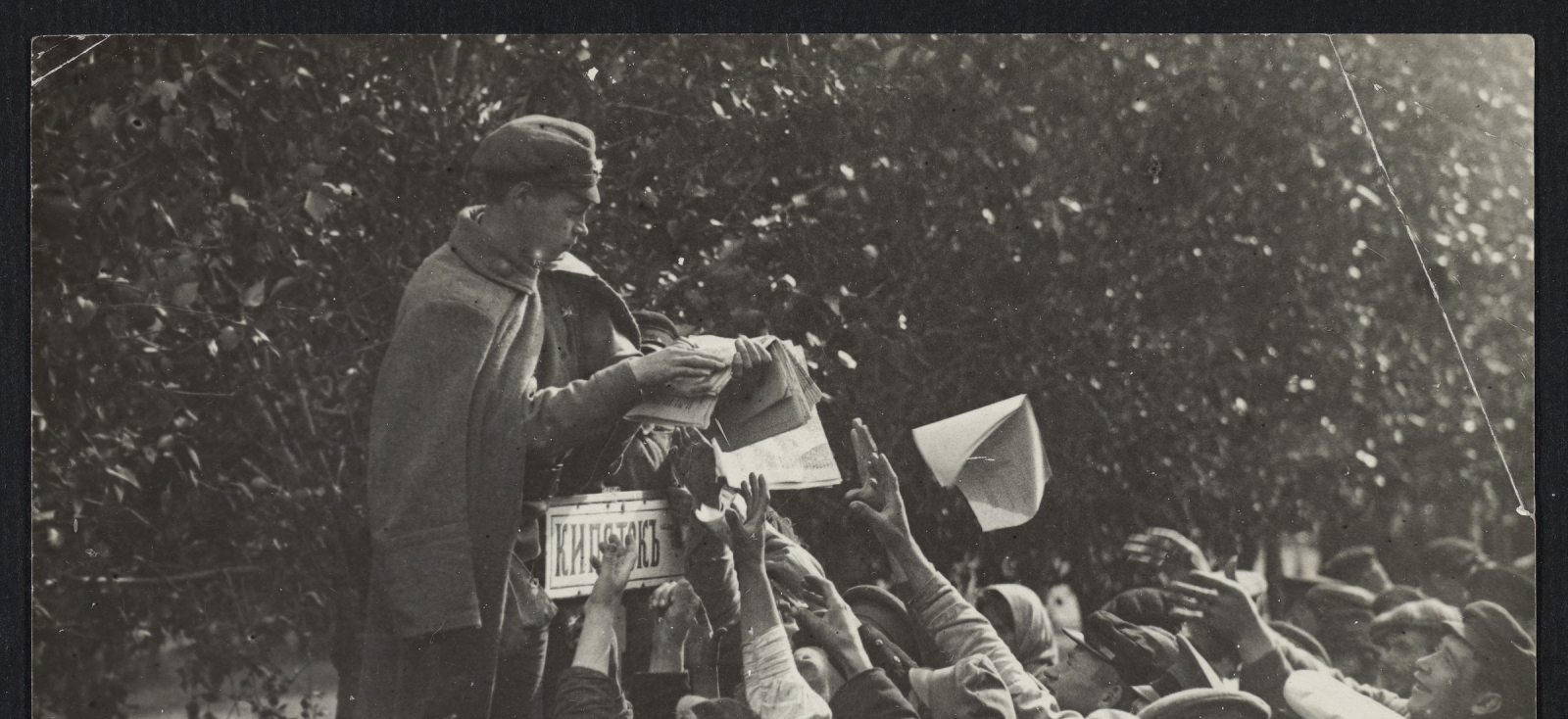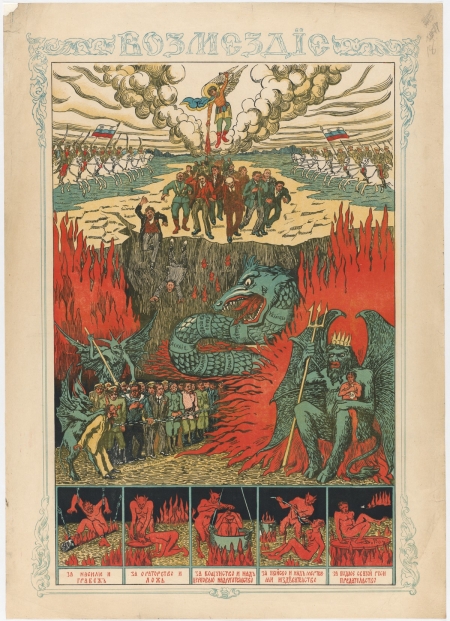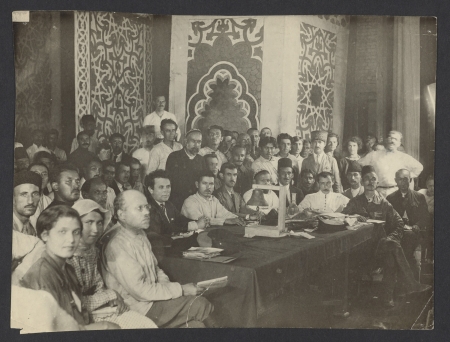
Russia’s revolutionary period (1905-1917) reshaped power dynamics throughout the world. Its impact is documented through pamphlets, literature, newspapers, and the personal papers of revolutionaries, counter-revolutionaries, and members of the imperial family and army.
Revolutionary Material
One of Houghton’s most notable revolutionary-related collections is the Leon Trotsky papers from his years in the Soviet Union, including Trotsky’s manuscript speeches and his correspondence with Vladimir Lenin, Joseph Stalin, Georgy Chicherin and other members of the early Soviet government. Houghton is also home to Trotsky’s Exile Papers, showing his continued impact on world politics. (The harrowing story of how Harvard obtained Trotsky’s papers is detailed in this Crimson article.)
The José María Castañé collection of political broadsides from revolutionary Russia, 1917-1920 is a visually rich collection of striking examples of posters produced by the Bolshevik government to celebrate revolutionary anniversaries and spread information. It is complemented by Houghton's collection of anti-revolutionary posters.

Houghton is also home to a robust collection—over 1,100 volumes—of revolutionary literature published between 1826 and 1920. Works by 19th-century Russian revolutionary writers Mikhail Bakunin and Nikolay Chernyshevsky and early 20th-century revolutionaries such as Anatoly Lunacharsky and Vladimir Lenin document the nuances of the struggle. The collection can be browsed in HOLLIS using this search. (Toggling the date or publication location on the left-hand side will narrow the search.)
The counter-revolutionary perspective is documented in the papers of figures such as the Social democrat and Duma representative, Grigoriĭ Aleksinskiĭ, and the Grand Duke of Russia, Dmitriĭ Pavlovich. The Russian civil war is highlighted in the Iuriĭ Nikiforovich Danilov papers which include correspondence with commanders of the Russian White Army.
Two collections held at Houghton offer information on the assasination of the Russian Imperial family (who abdicated in 1917) and the rumored disappearance of the Grand Duchess Anastasia: the Sokolov Collection of documents concerning the investigation into the death of Nicholas II, 1918-1920 and the Edward Huntington Fallows "Anastasia" papers.

The making of a first-hand account of the Russian Revolution is found in the John Reed papers, 1910-1920. Reed, a Harvard graduate, was an American Socialist who traveled to Russia just before the October Revolution and famously described the events in his book, Ten Days that Shook the World. The collection includes correspondence, manuscripts, printed material, ephemera and photographs of well-known figures such as Lenin, Trotsky, and Kerensky, as well as images of daily life in Russia during the revolution.
Related Collections at Harvard Library
The Charles Claflin Davis papers at the Harvard Law School Library offer crucial evidence of the Russian refugee experience. In the early 1920s Davis served as the Director of the South Eastern Base of the American Red Cross in Constantinople, which assisted many of Russia’s refugees fleeing from civil war. The collection consists of letters, photos, albums of children's art, newspaper clippings, scrapbooks, a ledger, an almanac, and citations.
The Fung Library holds the papers of Poliksena Shishkina-Iavein, a prominent women’s rights activist who played a pivotal role in the 1917 universal suffrage movement that secured electoral rights for the women of Russia. The collection contains over 140 digitized images of Shishkina-Iavein and the Russian League for Women's Equal Rights. Widener Library is home to a wide range of important revolutionary-era periodicals and pamphlets such as Poliarnaia zviezda, Prosvieshchenie, and Okrainy Rossii.
Harvard has been home to many scholars who have written on Russia and its revolution. Among them, Richard Pipes and Archibald Cary Coolidge are represented in the collections at the Harvard University Archives. Their collections include research notes and manuscript drafts of published works and lectures.
Accessing These Materials
All material is available for use in Houghton Library’s reading room.